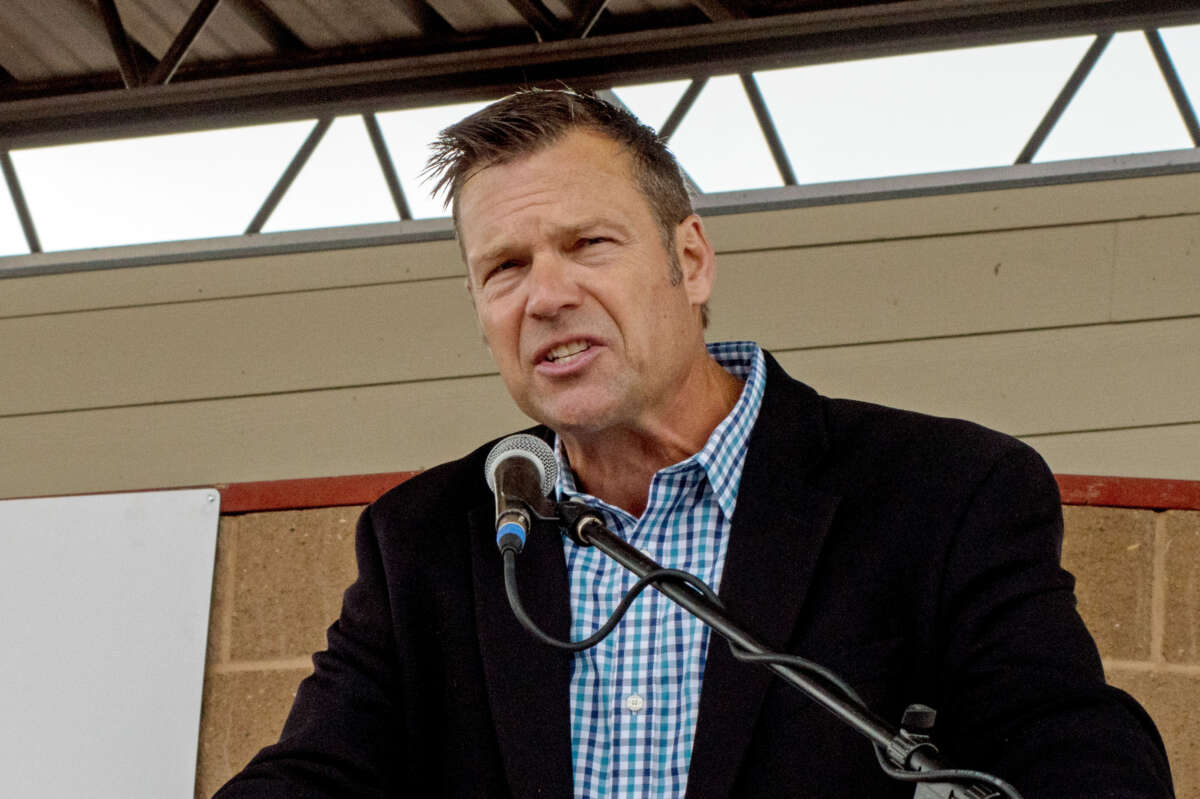The American Civil Liberties Union (ACLU) of Kansas, representing five transgender Kansans who want to get or keep a driver’s license that matches their gender identity, filed a motion to intervene in a lawsuit between Attorney General Kris Kobach (R) and the Kansas Department of Revenue.
“Mr. Kobach’s actions demonstrate a flagrant attempt to do an end-run around our state constitution,” said Sharon Brett, legal director of the ACLU of Kansas.
On July 1, SB 180, a law that restricts the definition of sex in order to limit transgender rights in the state, went into effect. While the right to change gender makers on birth certificates was confirmed in 2018, Kobach’s office has asked the federal court to nullify the consent agreement in this case since the passing of SB 180 and has advised that the anti-trans law would revert driver’s licenses and birth certificates of some Kansans back to the genders they were assigned at birth.
Lambda Legal Counsel and Health Care Strategist Omar Gonzalez-Pagan, who served as lead counsel in Foster v. Andersen – Lambda Legal’s challenge to Kansas’s previous discriminatory birth certificate policy – which resulted in the consent agreement, responded in a statement saying, “Today’s action represents yet another unnecessary and cruel move to target the transgender community with animus and discrimination for political gain.”
According to the Movement Advancement Project, at least five U.S. states currently ban all changes to gender markers on birth certificates and nine states severely limit gender marker changes on driver’s licenses. Other states, including Montana, have passed legislation that redefines sex in an attempt to limit transgender people’s rights. Kansas is also among at least 10 states with a law on the books that bans transgender people from using facilities, like changing rooms and bathrooms, that align with their gender identities.
Gov. Laura Kelly (D) has said that the anti-trans laws are being pushed by national organizations that have an agenda to systematically implement laws that strip rights away from trans people at the state level across the country. This legislative session, Governor Kelly vetoed a slew of anti-trans laws, including SB 180, which was later overridden by the legislature. “By stripping away rights from Kansans and opening the state up to expensive and unnecessary lawsuits, these bills would hurt our ability to continue breaking economic records and landing new business deals,” Kelly said when vetoing these bills in April.
In response to Kobach’s interpretation of SB180, Kelly has vowed that the state would “keep in place … policies regarding gender markers on birth certificates and driver’s licenses,” which prompted a lawsuit filed by Kobach on July 7.
Three days after the lawsuit was filed, District Judge Teresa Watson enacted a temporary restraining order, effectively blocking the administration from issuing updated licenses for the next two weeks. The Kansas Department of Revenue has asked Judge Watson to reverse her decision, alleging that the legislature erred when it enacted the anti-trans law.
The ACLU’s motion to intervene contends that the five transgender Kansans they are representing would suffer irreparable harm if they are not able to change their gender marker on their licenses. If the ACLU’s motion to intervene is granted, the organization will be able to fight Kobach’s anti-trans agenda in court.
“Our clients deserve to live their lives free of harassment, discrimination, and violence —- all consequences that Mr. Kobach’s erroneous legal interpretations are designed to encourage,” Brett said in a statement.
Press freedom is under attack
As Trump cracks down on political speech, independent media is increasingly necessary.
Truthout produces reporting you won’t see in the mainstream: journalism from the frontlines of global conflict, interviews with grassroots movement leaders, high-quality legal analysis and more.
Our work is possible thanks to reader support. Help Truthout catalyze change and social justice — make a tax-deductible monthly or one-time donation today.
